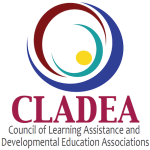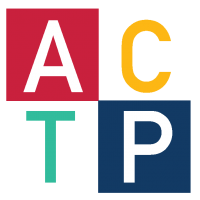April's
Feature
Fridays
New Content For Members Every Friday for the Month of April, 2021
April 2nd Sessions
You must be a registered, paid member of the ACTP to access these sessions.
Please ensure that you are logged in to continue.

Michael Greco
Youngstown State University
Team Tutoring - Collaborating with Faculty to Improve Academic Support
Over the last few years we have used a group tutoring model as an alternative to SI to improve student attendance and participation. One key feature of the model was that the lead tutor was not required to attend class regularly but instead would be responsible for communicating with faculty outside of their session times. Over a few semesters, we found that the level of that communication varied significantly among the lead tutors and input from faculty partners was inconsistent. But with the incorporation of technology within the last year, our ability to collaborate and maintain partnerships with faculty has increased significantly. This presentation will feature a team-tutoring model, which incorporates faculty into all aspects of tutoring including tutor recruitment, marketing of services, session planning, and assessment. Those who view this session will take away key information to assist with faculty collaboration.

Dr. Laura Murray
Princeton University

John Schulz
Princeton University
Graduate Peer Coaching Online: Lessons from a New Program
In this presentation, we look forward to sharing some of the key lessons that we’ve learned over the past year as we developed and then implemented a graduate peer coaching program at our institution. We’ll begin by describing the need behind this program, as well as its objectives; our evolving conceptualization of “coaching” by and for grad students; and the nuts-and-bolts process of launching the initiative. Next we’ll share an overview of the program’s current elements, including selected content from our training for new coaches, as well as some of the issues that have arisen in the their subsequent consultations with “coachees.” We’ll then discuss some of the challenges of implementing the new program during COVID-19, as well as several surprising benefits of operating it virtually (which we did not initially plan). We’ll conclude by proposing that this new initiative may be a useful model for other institutions considering ways to support graduate student scholarship and thriving - both as we continue social distancing, and certainly as we move beyond it.
April 9th Sessions
You must be a registered, paid member of the ACTP to access these sessions.
Please ensure that you are logged in to continue.

Emily Guetzoian, Ed.D
Pepperdine University
Miscellaneous Duties as Assigned: Making Effective Use of Tutor Down Time
Many tutoring centers find that their tutors are not actively tutoring 100% of their assigned hours, especially during slower times of the year when there are fewer appointments or drop-ins. This session will provide useful strategies for making effective time of tutor “down time” when they are not actively tutoring. This non-tutoring time can be both professionally beneficial to the student tutor and beneficial to the center/department. This session is useful for tutors looking for ideas to most effectively spend project hours, as well as tutoring center staff and administrators who want to expand their center/department resource offerings.
April 16th Sessions
You must be a registered, paid member of the ACTP to access these sessions.
Please ensure that you are logged in to continue.

Jan Hoffman, M.Ed
East Stroudsburg University
Academic Coaching - Engaging Students
Many students are learning online during this unique school year. Of course, it's no secret that teaching in an in-person classroom creates more natural opportunities to engage students than teaching online. Engaging students virtually, however, can happen with some easy-to-use lessons and strategies to implement in your own online classroom! Here are some tips and tools to get started engaging students virtually

Jan Hoffman, M.Ed
East Stroudsburg University
Academic Coaching - Grow Model
The GROW Model is a coaching framework used in conversations, meetings, and everyday leadership to unlock potential and possibilities.
April 23rd Sessions

Dominic (Nic) Voge
Princeton University
Help Your Students Get Unstuck: Cognitive Process Coaching for Writers
One area in which students frequently encounter difficulties is academic writing. Perhaps they have developed maladaptive methods or habits, engage in patterns of procrastination, or hold unhelpful (often unexamined) assumptions and beliefs about writing. With writing seemingly more than other academic work/tasks students feel stuck, encounter writing blockages, and experience stultifying anxiety. By using a cognitive process coaching lens which helps students understand writing demands in terms of cognitive load, coaches can help students manage cognitive loads. In this workshop coaches will also learn how to help students identify and select strategies, techniques, and tools targeted to specific aspects of the writing process in order to overcome blocks, feel greater agency, and expand their repertoire of writing strategies.
More presentation information coming soon!
We are pleased to be a founding participant of the Council of Learning Assistance and Developmental Education Associations.
The CLADEA website maintains a current list of
Fellows of the Council

©2024 Association for the Coaching and Tutoring Profession
